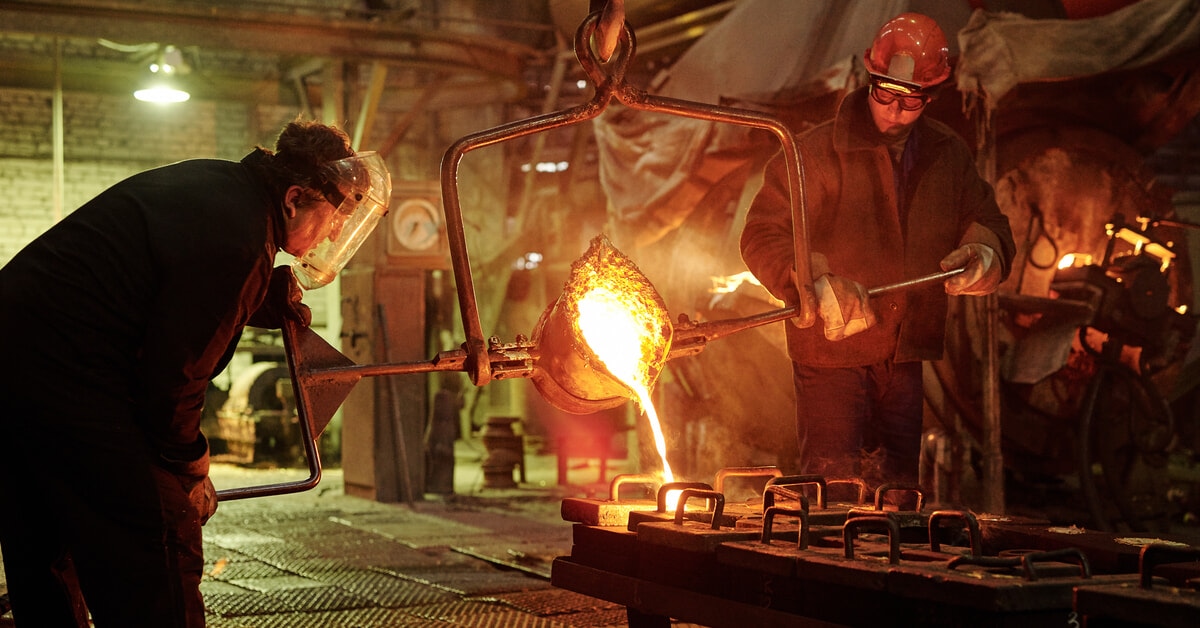CHOOSE
A DIFFERENT TERRITORY

As a world-leading recycler, EMR plays a significant role in building a resilient, green, and successful net-zero economy.
“By supplying recycled metals, plastics and minerals EMR enables more businesses to source their raw materials in a sustainable way. This helps the UK becomes less reliant on nature-depleting virgin materials such as iron ore for steel and limestone for cement,”
— Roger Morton, Director for Technology and Innovation at EMR.
Sectors that produce basic materials such as steel and cement making– are collectively known as ‘foundation industries’ as they underpin so much of the manufacturing and construction that happens in a modern economy like the UK.
“Without cement, the construction industry can’t build new homes and without high-quality steel, the UK would not have a car industry,” says Roger. “Foundation industries sit at the root of most of what we need to live our lives.”
But this comes at a cost. Collectively, the steel and cement industries are responsible for almost a fifth of global carbon emissions (11%* and 7%**, respectively).
EMR is committed to playing its part in reducing these emissions and the good news is that the volumes of recycled metal available in the UK highlight the opportunity that exists to cut its reliance on mined virgin iron ore.
“At present the UK consumes approximately 12 million tonnes of semi-finished steel every year and produces around 11 million tonnes of steel scrap,” says Roger.
Recycled material offers up to 85% lower embedded carbon when compared with nature-depleting virgin alternatives, so the advantages of using more recycled metal to feed the UK’s steelmaking market are obvious. EMR now plans to go one step further, utilising its skills and experience to reduce the emissions of both the steelmaking and cement industries.
RECTIFI – a ground-breaking project that brings together the steel, cement and recycling industries – promises to avoid almost 5 million tonnes of CO2 equivalent from entering the earth’s atmosphere each year. The project is part funded by UK Research and Innovation’s Transforming Foundation Industries Challenge.
The concept behind RECTIFI is relatively simple: pairing EMR’s expertise with that of steelmakers to produce new grades of recycled green steel that are engineered to match the chemistry of the final product. Minerals extracted from the resulting shredder residue will then be supplied to the cement-making industry as a sustainable raw material, reducing the need for carbon intensive and ecologically damaging mining processes.
“In preliminary trials with TATA, our teams have demonstrated how new grades of recycled steel can be delivered with the chemistry performance required for high-quality low carbon steelmaking, lowering the demand for virgin iron ore,” says Roger. “Our work with Darlow Lloyd & Sons, meanwhile, is helping to develop a new mineral-rich alternative raw material for cement. Aggregate Industries is evaluating this for its UK cement kilns.”
In the RECTIFI partnership, EMR is leading on the development of a recycled steel upgrade Line, using advanced sorting technology with artificial intelligence, as well as a recycled mineral blending plant, both of which will be the first of its type to be built in the UK.
Taken together, the potential reduction in carbon emissions and increased efficiency associated with the RECTIFI project will save more that £434 million per year in carbon credits and materials costs.
“In addition, RECTIFI offers an exciting potential pathway to help these essential foundation industries function as part of a low carbon economy,” says Roger. “While EMR is working hard to reach net-zero by 2040 in line with our sustainability strategy, our position as a leading metal recycler means that we have a responsibility to help the rest of the businesses in our supply chains to decarbonise too. RECTIFI is a great example of that approach in action.”
*https://www.globalefficiencyintel.com/new-blog/2021/global-steel-industrys-ghg-emissions
**https://www.chathamhouse.org/sites/default/files/publications/2018-06-13-making-concrete-change-cement-lehne-preston-final.pdf